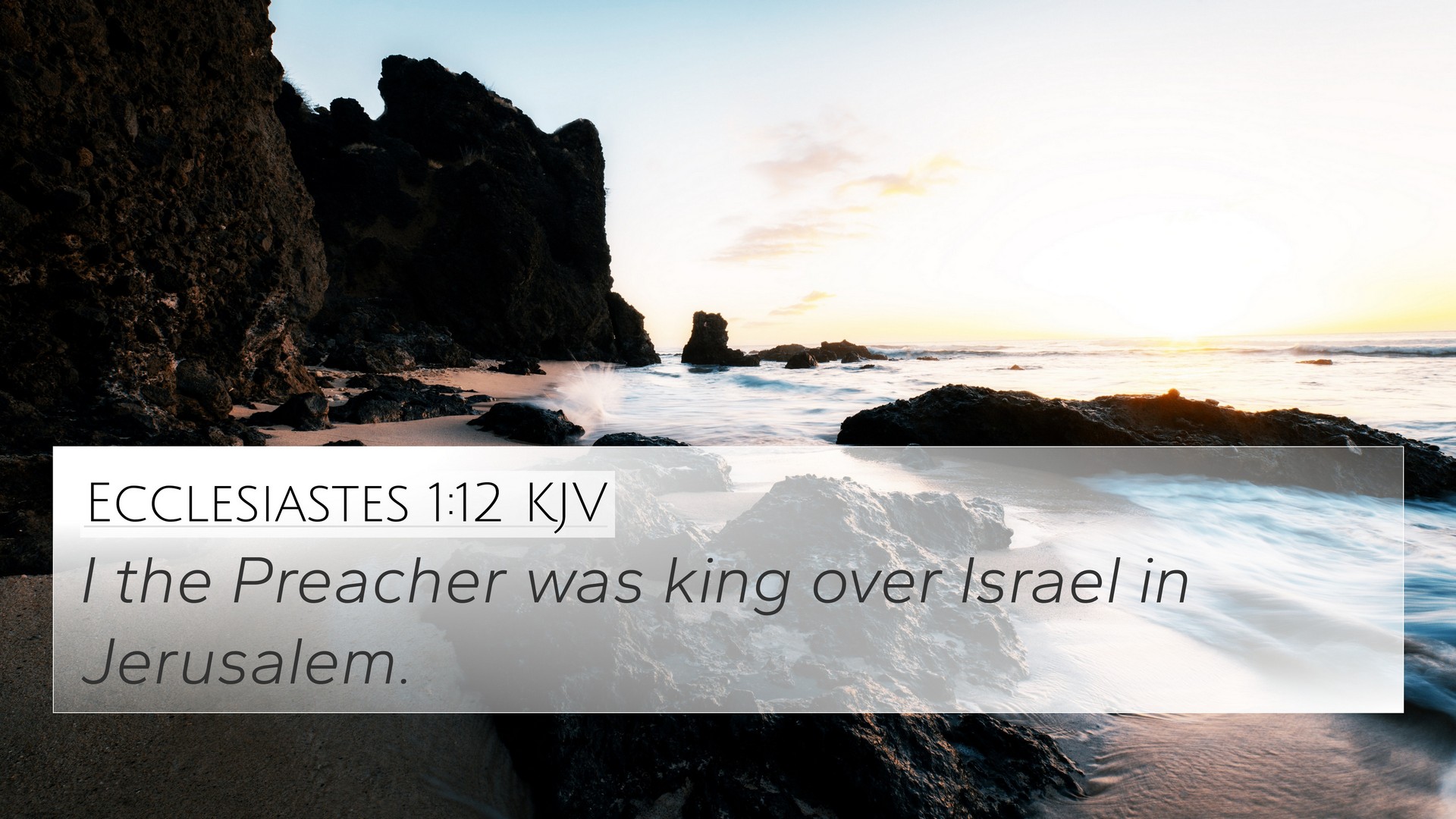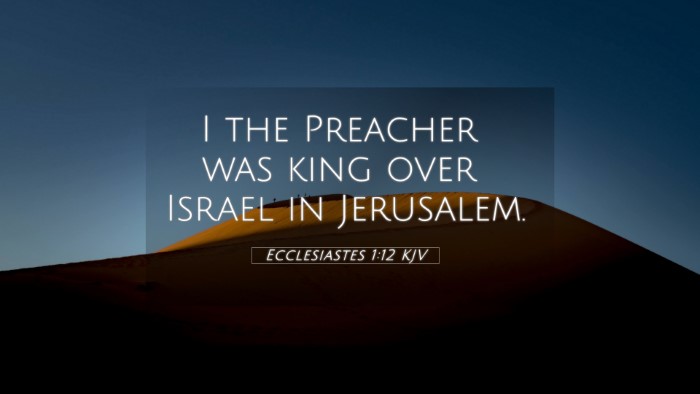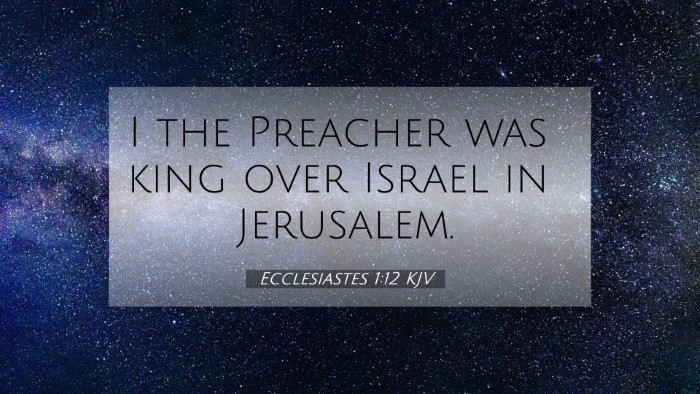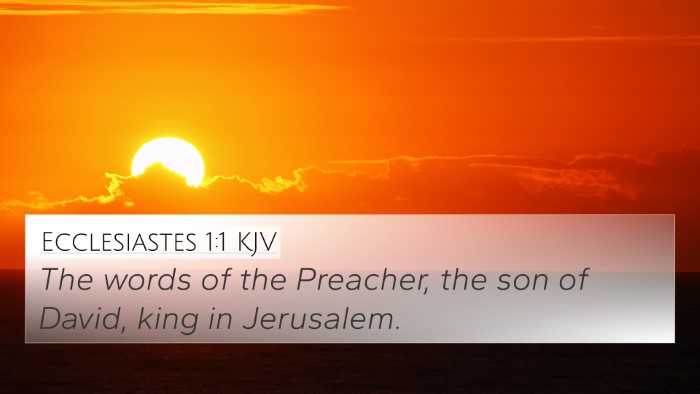Understanding Ecclesiastes 1:12
Ecclesiastes 1:12 states, “I, the Preacher, was king over Israel in Jerusalem.” This verse sets the stage for the teachings of the author, traditionally identified as Solomon, who reflects on his experiences and observations about life.
Contextual Background
The book of Ecclesiastes is a unique piece of wisdom literature, characterized by its exploration of the meaning of life and the futility of human endeavors. The author, who claims to be a royal figure, uses the vantage point of his wisdom and experiences to analyze life.
Combined Insights from Commentaries
Matthew Henry's Commentary reflects that Solomon's position as a king gives him comprehensive authority and perspective. He expresses his role as a teacher, aiming to impart life lessons derived from his observations. Henry emphasizes that Solomon examined life from various angles and found it often lacking in meaning. His criticism of earthly pursuits serves as a warning to readers.
Albert Barnes provides an interpretation that emphasizes the solemnity and wisdom of Solomon’s reflections. He notes that the title “Preacher” implies a role of authority in imparting wisdom to others. Barnes points out that Solomon’s conclusions arise from a life of pursuit and experience, leading to the insight that many earthly pursuits are meaningless in the grand scheme of existence.
Adam Clarke highlights that this declaration of kingship carries weight as it establishes Solomon's authority on the subject. Clarke suggests that the longings of the human heart are best expressed through the reflections of someone who has lived a full life. This positioning prompts readers to consider their own pursuits and the transient nature of worldly achievements.
Thematic Connections
The verse encapsulates several themes pertinent to the study of Scripture:
- The quest for meaning and significance in life.
- The futility of wealth and human achievements.
- The wisdom that comes from experience, particularly of those in positions of authority.
Cross-References
Ecclesiastes 1:12 can be linked to several important cross-references that enhance understanding:
- 1 Kings 3:12 - Solomon is granted wisdom, establishing his role as a wise king.
- Ecclesiastes 2:1 - The exploration of pleasure and its ultimate vanity.
- Psalm 90:12 - A prayer for wisdom to number our days, aligning with the fleeting nature of life.
- Proverbs 1:1-7 - The purpose of wisdom literature, similar to Ecclesiastes.
- Ecclesiastes 12:13-14 - The conclusion of the matter: fear God and keep His commandments.
- James 4:14 - The transitory nature of life, akin to the themes found in Ecclesiastes.
- 1 Peter 1:24 - The impermanence of human glory compared to the eternal word of God.
Inter-Biblical Dialogue
This verse invites readers to engage in an inter-Biblical dialogue that encourages deeper reflection on the nature of wisdom and the reality of human existence. The exploration of these themes can be enriched through:
- Tools for Bible cross-referencing, which help identify patterns and themes throughout scripture.
- Bible concordances to locate related verses that speak to the themes of vanity and life’s purpose.
- Comparative Bible verse analysis that examines resonances between Ecclesiastes and other wisdom literature.
Conclusion
Ecclesiastes 1:12 stands as a profound reflection on the human condition from a wise king's perspective. The insights drawn from esteemed commentaries reveal the depth of Solomon's existential contemplations, guiding readers toward a richer understanding of life's fleeting nature and the pursuit of genuine meaning.
Keywords
In this analysis, we explored vital keywords such as Bible verse cross-references, linking Bible scriptures, thematic Bible verse connections, and many others to enrich the study and understanding of Ecclesiastes 1:12.




